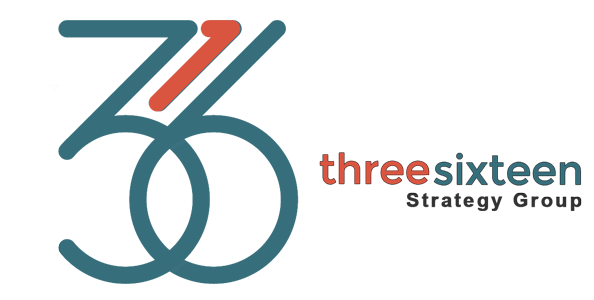It’s no secret that small business podcasts are a beloved form of media. Approximately 80 million Americans listen to a podcast every week. People tune into podcasts when they’re out for a walk, driving to the grocery store, or spending time around the house.
Podcasting is for anybody. Anyone can make a podcast about anything, which makes it a very accessible medium. And it is one that your small business should take advantage of.
Small businesses have a lot to gain by making a podcast. Keep reading to learn the benefits of small business podcasts, as well as some tips on how to make your own.

The Benefits of Podcasts for Your Small Business
Podcasts can spread the word about your business and ultimately attract new customers. Here’s a list of some of the things a podcast can do for your small business:
- It boosts your credibility in your industry
- It exposes you to new customers
- It legitimizes your brand
- It creates new advertising opportunities
- It has a high ROI
Let’s go through these benefits one by one.
Podcasts Boost Your Credibility in Your Industry
Making a podcast through your business demonstrates that you have a depth of industry knowledge that goes above and beyond. By informing customers about what you do, you will gain their trust.
Not only do you gain credibility this way, but you also demonstrate authority. Potential customers will come to see you as a leading figure in the field. Building trust is the first step to attracting new customers.
It Exposes You to New Customers
Small businesses are always trying to figure out how to expand their reach. Making a podcast is a great way to spread your name within a community of people who are interested in what you have to say. Podcast listeners are potential customers.
Suddenly, you could have customers from around the world. These are connections that would be nearly impossible to make otherwise.
A Podcast Legitimizes Your Brand
Your brand is defined by everything your customers perceive about you. Your imagery, your tone, your messaging, etc. And customers tend to trust brands that they can find in multiple mediums.
If customers see consistency through your website, your social media, and now your podcast, it legitimizes your brand to them.
Furthermore, making a podcast can humanize your brand. When there is a human voice to associate with your logo, people feel more comfortable relating to your company.
It Creates New Advertising Avenues
It’s important to have a diverse advertising strategy. You want to advertise in multiple mediums so that you can reach as many people as possible. Making a podcast allows you to plunge into the world of podcast advertising.
It can be as simple as reaching out to the creator of another podcast and asking if you can feature each other on your programs. A lot of podcasters will take you up on that kind of mutually beneficial advertising.
These partnerships can be industry-specific, or they can be location-based. Here in Omaha, for example, there are a lot of opportunities for Omaha podcasts to feature each other.
Making a Podcast Has a High ROI
ROI stands for “return on investment.” As a small business owner, you know that it is important to get your money’s worth out of every opportunity. With podcasting, the return on your investment is high.
Once you learn how to make a podcast, it is easy to keep the process going. Many people never get into making podcasts because they think it is going to be really hard, but it isn’t.
And you can make podcasts on a very low budget. While you likely won’t see an immediate return on the money you spend, you can watch your podcast grow. As you gain more listeners, your customer base and industry connections will likely also grow.
By now you’re probably sold on the benefits of making a podcast for your small business. So let’s transition into talking about how you can make one.
How to Start Making Your Podcast
Making a podcast for your small business is actually not hard once you learn how to do it. But first thing’s first: you need an idea.
You need to strike an elegant balance with the theme of your podcast. On one hand, it needs to be broad enough that you have lots of material to talk about in your episodes.
On the other hand, it needs to be narrow enough to have a clear focus. If the focus is too wide, you won’t be able to maintain consistent listeners.
Plan your podcast like your business. Make a “business plan.” Who will be attracted to your podcast and what will they learn?
It can be anything related to your business. But make sure you choose something that will deliver consistently useful content to your listeners.
Once you have your idea, you need to define the other parameters of your podcast.
Determine the Parameters of Your Podcast
 A podcast is an audio series that you can find and listen to online. So that being said, podcasts can take a lot of different shapes. They can be different lengths, use different styles, and have ranging levels of formality.
A podcast is an audio series that you can find and listen to online. So that being said, podcasts can take a lot of different shapes. They can be different lengths, use different styles, and have ranging levels of formality.
So first, make a decision on length. Many podcasts fall between 20-40 minutes. Yours can be longer or shorter than that, but it is probably a good idea to keep all of your episodes around the same length.
Next, choose your format. Will it be just you talking the whole time? Will you have a co-host and share the air time?
Maybe you decide on an interview format, and bring different guests on every episode. Whatever the format you choose, make sure it is something that you can do for many episodes.
The format will probably inform your podcast style. Will it be formal and professional? Or witty and conversational?
Pick something that feels natural to you, because that will resonate the best with your listeners.
Last but not least, pick a name for your podcast. The name should be short, catchy, and descriptive.
Once you have all of these logistics planned out, you can actually begin to make your podcast.
Gather Your Equipment
 Equipment-wise, podcasts are much more accessible than radio broadcasting. You don’t need a recording studio or thousands of dollars worth of equipment.
Equipment-wise, podcasts are much more accessible than radio broadcasting. You don’t need a recording studio or thousands of dollars worth of equipment.
However, there are some things you definitely need. As a small business, you probably have some of these things.
You will need a laptop or computer. And on that laptop, you should download audio editing software. There are a couple of different options you can choose from.
You have to pay for services like Adobe Audition, but Adobe is one of the best options out there. If you take the time to learn it, there are a lot of cool editing hacks you can pick up.
But there are also free services like Audacity and GarageBand. These are both professional-grade services that you can use without paying for them.
One thing you may not have that you should buy is a high-quality microphone. Do not depend on the one from your laptop. Remember, you are creating something that people listen to; the audio quality should be top-tier.
That being said, you can purchase a good microphone for approximately $100.
Plan Your Episodes
Plan 10-20 episodes before you release any of them. You don’t have to record them all, but you want to have a plan for where your project is going. That’s the best way to make sure you can keep creating content that benefits your business.
You don’t have to be scripted, but you should have a detailed outline for how you want your episodes to go. You can always edit things out later, but it helps to have a vision for your episodes.
By the time you launch your podcast, you should have at least four episodes that listeners can tune into right away. After that, release one per week, or every other week. The schedule is up to you, but make sure it is frequent enough to hold a listener’s interest.
Technical Additions
The technical additions to your podcast are where you can really channel your business. As part of your podcast, you’ll record an intro, an outro, and you’ll feature some music.
Music should be part of your whole podcast. You should have “theme” music that is present at the beginning and end of every episode. This is how listeners will recognize you and your brand.
Many podcasters choose to weave music in throughout the rest of their episode, too. This doesn’t have to be theme music, it just has to help accentuate the mood or the point you are making.
The one really important rule about music is that you can only use music that you have the legal rights to use. Just pulling a song off of Spotify could get you in big trouble. Check out sites like Incompetech for some legally usable music.
Or, you could collaborate with a local band. If local musicians write music for you to use, you’ll get unique theme music and they’ll get exposure.
Finally, you should talk about your business and your podcast in your intro. This should be 1-3 succinct sentences that perform as an elongated catchphrase. From hearing the intro, listeners should know your business name, what you do, and what the podcast is about.
Your outro will be similar, but here’s where you can thank sponsors or collaborators if you have any. Make sure to mention your business name again in the outro!
Cover Art
You’ll also need to pick some cover art for your podcast. It should be something simple, interesting, and memorable. If you have a business logo that can fit onto a square tile, use that.
Or, like with the music, feel free to collaborate with a local artist. You’ll get unique work that is specifically tailored to your vision. Plus, you can give a local artist some coveted exposure.
The great thing about collaborating with other businesses or artists is that they will spread the word of your podcast to their friends and family. It is always worth investing in local connections.
Find a Media Host
Once you have a few episodes recorded, you need to find a media host. These are basically the sites that will connect you with the big distributors: iTunes, Spotify, etc.
Go to sites like Buzzsprout or Liberated Syndication (Libsyn.) Some of these sites will require you to pay for use. But they will give you an RSS feed, which is what you can distribute to sites like iTunes.
Once your podcast has been accepted onto a major site, you need to get the word out there so you can attract some listeners.
Promote Your Podcast
A podcast is no good without listeners. While it would be great if people found your podcast organically, you will probably have to do the bulk of the promotion yourself.
Start promoting your podcast on your business’s social media accounts for a few weeks prior to your release date. That way, you can build a following before your podcast even goes up.
Post frequently about your podcast. Send out links to your listserve in an email. Ask people you know to share the podcast on their pages as well.
Slowly but surely, you can grow your listener base.
Invest Time in Small Business Podcasts
Small business podcasts are a great marketing tool for attracting new customers. They’ll cement your expertise in the field, and make your brand personable and accessible.
The benefits of making a podcast for your small business are extensive and long-lasting. If you have questions and want to learn more about podcasting in Omaha as a business owner, contact 316 Strategy Group today.










